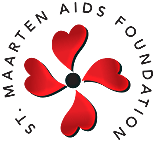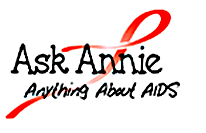knowledge is power get informed
What is HIV?
HIV stands for Human Immunodeficiency Virus. It is a virus that is transmitted from person to person through the exchange of body fluids such as blood, semen, vaginal secretions and breast milk. As the virus reproduces itself in the body, it damages the body’s immune system and its ability to fight illness, making it more susceptible to sickness and infection.
People with HIV have what is called HIV infection and are considered HIV-positive (or HIV+). In time, the virus causes AIDS in the infected person.
As of today there is no vaccine and no cure for HIV infection.
What is AIDS?
AIDS stands for Acquired Immune Deficiency Syndrome and is caused by a virus known as the Human Immunodeficiency Virus or HIV.
It is Acquired - meaning that it is a virus that a person contracts as opposed to a condition that is hereditary (passed on through genes).
Syndrome: A wide range of different diseases, conditions and opportunistic infections someone with AIDS may experience. The immune system becomes weak, and because of that, the body cannot defend itself against all kinds of infections/cancers. These infections together form the syndrome that we call AIDS. Because of this, we cannot speak of any specific symptoms for AIDS. Every one of these diseases has their own symptoms, and those are the symptoms of AIDS.
AIDS is a condition that describes an advanced state of HIV infection – where the virus has progressed, causing significant damage to the body’s immune system. A person with AIDS may experience a wide range of different diseases, conditions and opportunistic infections – in other words, there is no disease specific to AIDS, but rather, a variety of illnesses that take advantage of the weakened immune system. These could be different forms of cancer and/or infections.
If I am HIV-positive, does it mean that I have AIDS?
No. However, if left untreated, HIV progression to AIDS will occur within 8-10 years (this could be shorter or longer, depending on the individual). The timeframe depends greatly on the strength of the individual’s immune system (genetics may play a role here), as well as health-related choices and behaviors such as proper diet, exercise and risk-avoidance. Today there are medical treatments that can slow down the rate at which HIV progresses through the body.
If I am HIV-positive, how do I know when I have developed AIDS?
The current Caribbean Epidemiology Centre (CAREC) classifies adults and adolescents (age 13+) to have AIDS when they are HIV positive and also display “at least two major signs and at least one minor sign, or at least one indicator disease.”
For a comprehensive list of major/minor signs and indicator diseases, please refer to the following document on CHART Network:
Major signs include:
- Involuntary weight loss of >10% of baseline body weight
- Chronic diarrhea with at least two loose stools per day for more than 30 days
- Intermittent or constant fever for more than 30 days
Minor signs include:
- Persistent cough for more than 30 days
- Generalized pruritic dermatitis
- Herpes zoster (HZV)
Indicator diseases include:
- Cancer
- Recurrent bacterial pneumonia
- Tuberculosis
An HIV-positive person without any of the above signs may still be considered to have AIDS if his or her CD4+ T cell count (the number of healthy cells in the blood defending the body’s immune system) is below 200 cells/mm3.
Do I get sick when I am first infected with HIV?
After an infection, only a small minority of people experience symptoms that are serious enough to require a doctor’s attention. Some may experience a dry cough, shortness of breath and flu-like symptoms.
During this stage, the virus multiplies rapidly inside your body. You may test negative for HIV during this stage because your body is not yet producing enough antibodies (fighting agents) against the virus. However, you can already pass on the virus to somebody else at this stage.
How would I know if I have been infected with HIV?
HIV is not a readily visible virus. You cannot tell if someone has HIV or AIDS by physical appearances and it cannot be diagnosed through symptoms alone. The only way to know if you have been infected with HIV is to take an HIV antibody test.
However, it should be noted that the HIV antibody test may not detect antibodies very early on in an infection. For most people, antibodies take 3 weeks to 3 months, and up to 6 months in very rare cases, to develop. Therefore getting tested within 3 months of an infection may result in an unclear test result and may necessitate a repeat testing.



